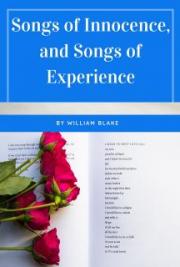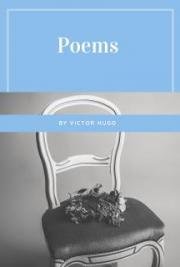Translations
by
Henry Wadsworth Longfellow
Web Book Publications
Translations
Prelude ...........................................................................................................................3
From The Spanish ..........................................................................................................4
From The Swedish And Danish...................................................................................30
From The German........................................................................................................48
From The Anglo-Saxon ...............................................................................................69
From The French..........................................................................................................75
From The Italian ........................................................................................................102
From The Portuguese.................................................................................................111
From Eastern Sources ................................................................................................112
From The Latin ..........................................................................................................118
Prelude
As treasures that men seek, Deep-buried in sea-sands,
Vanish if they but speak, And elude their eager hands,
So ye escape and slip, O songs, and fade away,
When the word is on my lip To interpret what ye say.
Were it not better, then, To let the treasures rest
Hid from the eyes of men, Locked in their iron chest?
I have but marked the place, But half the secret told,
That, following this slight trace, Others may find the gold.
From The Spanish
COPLAS DE MANRIQUE.
O let the soul her slumbers break, Let thought be quickened, and awake; Awake to see
How soon this life is past and gone, And death comes softly stealing on, How silently!
Swiftly our pleasures glide away, Our hearts recall the distant day With many sighs;
The moments that are speeding fast We heed not, but the past,--the past, More highly prize.
Onward its course the present keeps, Onward the constant current sweeps, Till life is done;
And, did we judge of time aright, The past and future in their flight Would be as one.
Let no one fondly dream again, That Hope and all her shadowy train Will not decay;
Fleeting as were the dreams of old, Remembered like a tale that's told, They pass away.
Our lives are rivers, gliding free To that unfathomed, boundless sea, The silent grave!
Thither all earthly pomp and boast Roll, to be swallowed up and lost In one dark wave.
Thither the mighty torrents stray, Thither the brook pursues its way, And tinkling rill,
There all are equal; side by side The poor man and the son of pride Lie calm and still.
I will not here invoke the throng Of orators and sons of song,
The deathless few;
Fiction entices and deceives,
And, sprinkled o'er her fragrant leaves, Lies poisonous dew.
To One alone my thoughts arise, The Eternal Truth, the Good and Wise, To Him I cry,
Who shared on earth our common lot, But the world comprehended not His deity.
This world is but the rugged road Which leads us to the bright abode Of peace above;
So let us choose that narrow way, Which leads no traveller's foot astray From realms of love,
Our cradle is the starting-place, Life is the running of the race, We reach the goal
When, in the mansions of the blest, Death leaves to its eternal rest The weary soul.
Did we but use it as we ought,
This world would school each wandering thought To its high state.
Faith wings the soul beyond the sky,
Up to that better world on high,
For which we wait.
Yes, the glad messenger of love, To guide us to our home above, The Saviour came;
Born amid mortal cares and fears. He suffered in this vale of tears A death of shame.
Behold of what delusive worth The bubbles we pursue on earth, The shapes we chase,
Amid a world of treachery!
They vanish ere death shuts the eye, And leave no trace.
Time steals them from us, chances strange, Disastrous accident, and change,
That come to all;
Even in the most exalted state,
Relentless sweeps the stroke of fate; The strongest fall.
Tell me, the charms that lovers seek In the clear eye and blushing cheek, The hues that play
O'er rosy lip and brow of snow, When hoary age approaches slow, Ah; where are they?
The cunning skill, the curious arts, The glorious strength that youth imparts In life's first stage;
These shall become a heavy weight, When Time swings wide his outward gate To weary age.
The noble blood of Gothic name, Heroes emblazoned high to fame, In long array;
How, in the onward course of time, The landmarks of that race sublime Were swept away!
Some, the degraded slaves of lust, Prostrate and trampled in the dust, Shall rise no more;
Others, by guilt and crime, maintain The scutcheon, that without a stain, Their fathers bore.
Wealth and the high estate of pride, With what untimely speed they glide, How soon depart!
Bid not the shadowy phantoms stay, The vassals of a mistress they, Of fickle heart.
These gifts in Fortune's hands are found; Her swift revolving wheel turns round, And they are gone!
No rest the inconstant goddess knows, But changing, and without repose, Still hurries on.
Even could the hand of avarice save Its gilded baubles till the grave Reclaimed its prey,
Let none on such poor hopes rely; Life, like an empty dream, flits by, And where are they?
Earthly desires and sensual lust Are passions springing from the dust, They fade and die;
But in the life beyond the tomb, They seal the immortal spirits doom Eternally!
The pleasures and delights, which mask In treacherous smiles life's serious task, What are they, all,
But the fleet coursers of the chase, And death an ambush in the race, Wherein we fall?
No foe, no dangerous pass, we heed, Brook no delay, but onward speed With loosened rein;
And, when the fatal snare is near, We strive to check our mad career, But strive in vain.
Could we new charms to age impart, And fashion with a cunning art The human face,
As we can clothe the soul with light, And make the glorious spirit bright With heavenly grace,
How busily each passing hour Should we exert that magic power, What ardor show,
To deck the sensual slave of sin, Yet leave the freeborn soul within, In weeds of woe!
Monarchs, the powerful and the strong, Famous in history and in song
Of olden time,
Saw, by the stern decrees of fate, Their kingdoms lost, and desolate Their race sublime.
Who is the champion? who the strong? Pontiff and priest, and sceptred throng? On these shall fall
As heavily the hand of Death,
As when it stays the shepherd's breath Beside his stall.
I speak not of the Trojan name, Neither its glory nor its shame
Has met our eyes;
Nor of Rome's great and glorious dead, Though we have heard so oft, and read, Their histories.
Little avails it now to know Of ages passed so long ago, Nor how they rolled;
Our theme shall be of yesterday, Which to oblivion sweeps away, Like day's of old.
Where is the King, Don Juan? Where Each royal prince and noble heir Of Aragon ?
Where are the courtly gallantries? The deeds of love and high emprise, In battle done?
Tourney and joust, that charmed the eye, And scarf, and gorgeous panoply,
And nodding plume,
What were they but a pageant scene? What but the garlands, gay and green, That deck the tomb?
Where are the high-born dames, and where Their gay attire, and jewelled hair, And odors sweet?
Where are the gentle knights, that came To kneel, and breathe love's ardent flame, Low at their feet?
Where is the song of Troubadour? Where are the lute and gay tambour They loved of yore?
Where is the mazy dance of old, The flowing robes, inwrought with gold, The dancers wore?
And he who next the sceptre swayed, Henry, whose royal court displayed Such power and pride;
O, in what winning smiles arrayed, The world its various pleasures laid His throne beside!
But O how false and full of guile That world, which wore so soft a smile But to betray!
She, that had been his friend before, Now from the fated monarch tore Her charms away.
The countless gifts, the stately walls, The loyal palaces, and halls
All filled with gold;
Plate with armorial bearings wrought, Chambers with ample treasures fraught Of wealth untold;
The noble steeds, and harness bright, And gallant lord, and stalwart knight, In rich array,
Where shall we seek them now? Alas! Like the bright dewdrops on the grass, They passed away.
His brother, too, whose factious zeal Usurped the sceptre of Castile, Unskilled to reign;
What a gay, brilliant court had he, When all the flower of chivalry Was in his train!
But he was mortal; and the breath, That flamed from the hot forge of Death, Blasted his years;
Judgment of God! that flame by thee, When raging fierce and fearfully,
Was quenched in tears!
Spain's haughty Constable, the true And gallant Master, whom we knew Most loved of all;
Breathe not a whisper of his pride, He on the gloomy scaffold died, Ignoble fall!
The countless treasures of his care, His villages and villas fair,
His mighty power,
What were they all but grief and shame, Tears and a broken heart, when came The parting hour?
His other brothers, proud and high, Masters, who, in prosperity,
Might rival kings;
Who made the bravest and the best The bondsmen of their high behest, Their underlings;
What was their prosperous estate, When high exalted and elate
With power and pride?
What, but a transient gleam of light, A flame, which, glaring at its height, Grew dim and died?
So many a duke of royal name,
Marquis and count of spotless fame, And baron brave,
That might the sword of empire wield, All these, O Death, hast thou concealed In the dark grave!
Their deeds of mercy and of arms, In peaceful days, or war's alarms, When thou dost show.
O Death, thy stern and angry face, One stroke of thy all-powerful mace Can overthrow.
Unnumbered hosts, that threaten nigh, Pennon and standard flaunting high, And flag displayed;
High battlements intrenched around, Bastion, and moated wall, and mound, And palisade,
And covered trench, secure and deep, All these cannot one victim keep, O Death, from thee,
When thou dost battle in thy wrath, And thy strong shafts pursue their path Unerringly.
O World! so few the years we live, Would that the life which thou dost give Were life indeed!
Alas! thy sorrows fall so fast,
Our happiest hour is when at last The soul is freed.
Our days are covered o'er with grief, And sorrows neither few nor brief Veil all in gloom;
Left desolate of real good,
Within this cheerless solitude
No pleasures bloom.
Thy pilgrimage begins in tears, And ends in bitter doubts and fears, Or dark despair;
Midway so many toils appear,
That he who lingers longest here Knows most of care.
Thy goods are bought with many a groan, By the hot sweat of toil alone,
And weary hearts;
Fleet-footed is the approach of woe, But with a lingering step and slow Its form departs.
And he, the good man's shield and shade, To whom all hearts their homage paid, As Virtue's son,
Roderic Manrique, he whose name Is written on the scroll of Fame, Spain's champion;
His signal deeds and prowess high Demand no pompous eulogy. Ye saw his deeds!
Why should their praise in verse be sung? The name, that dwells on every tongue, No minstrel needs.
To friends a friend; how kind to all The vassals of this ancient hall And feudal fief!
To foes how stern a foe was he! And to the valiant and the free How brave a chief!
What prudence with the old and wise: What grace in youthful gayeties; In all how sage!
Benignant to the serf and slave, He showed the base and falsely brave A lion's rage.
His was Octavian's prosperous star, The rush of Caesar's conquering car At battle's call;
His, Scipio's virtue; his, the skill And the indomitable will
Of Hannibal.
His was a Trajan's goodness, his A Titus' noble charities
And righteous laws;
The arm of Hector, and the might Of Tully, to maintain the right In truth's just cause;
The clemency of Antonine, Aurelius' countenance divine, Firm, gentle, still;
The eloquence of Adrian, And Theodosius' love to man, And generous will;
In tented field and bloody fray, An Alexander's vigorous sway And stern command;
The faith of Constantine; ay, more, The fervent love Camillus bore His native land.
He left no well-filled treasury,
He heaped no pile of riches high, Nor massive plate;
He fought the Moors, and, in their fall, City and tower and castled wall
Were his estate.
Upon the hard-fought battle-ground, Brave steeds and gallant riders found A common grave;
And there the warrior's hand did gain The rents, and the long vassal train, That conquest gave.
And if, of old, his halls displayed The honored and exalted grade His worth had gained,
So, in the dark, disastrous hour, Brothers and bondsmen of his power His hand sustained.
After high deeds, not left untold, In the stern warfare, which of old 'T was his to share,
Such noble leagues he made, that more And fairer regions, than before, His guerdon were.
These are the records, half effaced, Which, with the hand of youth, he traced On history's page;
But with fresh victories he drew Each fading character anew
In his old age.
By his unrivalled skill, by great And veteran service to the state, By worth adored,
He stood, in his high dignity, The proudest knight of chivalry, Knight of the Sword.
He found his cities and domains Beneath a tyrant's galling chains And cruel power;
But by fierce battle and blockade, Soon his own banner was displayed From every tower.
By the tried valor of his hand,
His monarch and his native land
Were nobly served;
Let Portugal repeat the story,
And proud Castile, who shared the glory His arms deserved.
And when so oft, for weal or woe, His life upon the fatal throw
Had been cast down;
When he had served, with patriot zeal, Beneath the banner of Castile,
His sovereign's crown;
And done such deeds of valor strong, That neither history nor song Can count them all;
Then, on Ocana's castled rock, Death at his portal came to knock, With sudden call,
Saying, "Good Cavalier, prepare To leave this world of toil and care With joyful mien;
Let thy strong heart of steel this day Put on its armor for the fray,
The closing scene.
"Since thou hast been, in battle-strife, So prodigal of health and life,
For earthly fame,
Let virtue nerve thy heart again; Loud on the last stern battle-plain They call thy name.
"Think not the struggle that draws near Too terrible for man, nor fear
To meet the foe;
Nor let thy noble spirit grieve,
Its life of glorious fame to leave On earth below.
"A life of honor and of worth
Has no eternity on earth,
'T is but a name;
And yet its glory far exceeds
That base and sensual life, which leads To want and shame.
"The eternal life, beyond the sky, Wealth cannot purchase, nor the high And proud estate;
The soul in dalliance laid, the spirit Corrupt with sin, shall not inherit A joy so great.
"But the good monk, in cloistered cell, Shall gain it by his book and bell,
His prayers and tears;
And the brave knight, whose arm endures Fierce battle, and against the Moors His standard rears.
"And thou, brave knight, whose hand has poured The life-blood of the Pagan horde
O'er all the land,
In heaven shalt thou receive, at length, The guerdon of thine earthly strength And dauntless hand.
"Cheered onward by this promise sure, Strong in the faith entire and pure Thou dost profess,
Depart, thy hope is certainty, The third, the better life on high Shalt thou possess."
"O Death, no more, no more delay; My spirit longs to flee away, And be at rest;
The will of Heaven my will shall be, I bow to the divine decree,
To God's behest.
"My soul is ready to depart,
No thought rebels, the obedient heart Breathes forth no sigh;
The wish on earth to linger still
Were vain, when 't is God's sovereign will That we shall die.
"O thou, that for our sins didst take A human form, and humbly make Thy home on earth;
Thou, that to thy divinity
A human nature didst ally
By mortal birth,
"And in that form didst suffer here Torment, and agony, and fear, So patiently;
By thy redeeming grace alone, And not for merits of my own, O, pardon me!"
As thus the dying warrior prayed, Without one gathering mist or shade Upon his mind;
Encircled by his family,
Watched by affection's gentle eye So soft and kind;
His soul to Him, who gave it, rose; God lead it to its long repose, Its glorious rest!
And, though the warrior's sun has set, Its light shall linger round us yet, Bright, radiant, blest.
SONNETS
I
THE GOOD SHEPHERD
(EL BUEN PASTOR)
BY LOPE DE VEGA
Shepherd! who with thine amorous, sylvan song
Hast broken the slumber that encompassed me, Who mad'st thy crook from the accursed tree, On which thy powerful arms were stretched so long!
Lead me to mercy's ever-flowing fountains;
For thou my shepherd, guard, and guide shalt be; I will obey thy voice, and wait to see
Thy feet all beautiful upon the mountains.
Hear, Shepherd! thou who for thy flock art dying, O, wash away these scarlet sins, for thou
Rejoicest at the contrite sinner's vow.
O, wait! to thee my weary soul is crying,
Wait for me! Yet why ask it, when I see,
With feet nailed to the cross, thou 'rt waiting still for me!
II
TO-MORROW
(MANANA)
BY LOPE DE VEGA
Lord, what am I, that with unceasing care, Thou didst seek after me, that thou didst wait Wet with unhealthy dews, before my gate, And pass the gloomy nights of winter there?
O strange delusion! that I did not greet Thy blest approach, and O, to Heaven how lost, If my ingratitude's unkindly frost
Has chilled the bleeding wounds upon thy feet.
How oft my guardian angel gently cried,
"Soul, from thy casement look, and thou shalt see How he persists to knock and wait for thee!"
And, O! how often to that voice of sorrow,
"To-morrow we will open," I replied,
And when the morrow came I answered still "To-morrow."
III
THE NATIVE LAND
(EL PATRIO CIELO)
BY FRANCISCO DE ALDANA
Clear fount of light! my native land on high,
Bright with a glory that shall never fade!
Mansion of truth! without a veil or shade,
Thy holy quiet meets the spirit's eye.
There dwells the soul in its ethereal essence, Gasping no longer for life's feeble breath;
But, sentinelled in heaven, its glorious presence With pitying eye beholds, yet fears not, death.
Beloved country! banished from thy shore,
A stranger in this prison-house of clay,
The exiled spirit weeps and sighs for thee!
Heavenward the bright perfections I adore
Direct, and the sure promise cheers the way, That, whither love aspires, there shall my dwelling be.
IV
THE IMAGE OF GOD
(LA IMAGEN DE DIOS)
BY FRANCISCO DE ALDANA
O Lord! who seest, from yon starry height, Centred in one the future and the past, Fashioned in thine own image, see how fast The world obscures in me what once was bright!
Eternal Sun! the warmth which thou hast given, To cheer life's flowery April, fast decays; Yet in the hoary winter of my days,
Forever green shall be my trust in Heaven.
Celestial King! O let thy presence pass
Before my spirit, and an image fair
Shall meet that look of mercy from on high,
As the reflected image in a glass
Doth meet the look of him who seeks it there, And owes its being to the gazer's eye.
V
THE BROOK
(A UN ARROYUELO)
ANONYMOUS
Laugh of the mountain!--lyre of bird and tree!
Pomp of the meadow! mirror of the morn!
The soul of April, unto whom are born
The rose and jessamine, leaps wild in thee!
Although, where'er thy devious current strays, The lap of earth with gold and silver teems,
To me thy clear proceeding brighter seems
Than golden sands, that charm each shepherd's gaze.
How without guile thy bosom, all transparent
As the pure crystal, lets the curious eye
Thy secrets scan, thy smooth, round pebbles count!
How, without malice murmuring, glides thy current! O sweet simplicity of days gone by!
Thou shun'st the haunts of man, to dwell in limpid fount!
ANCIENT SPANISH BALLADS.
In the chapter with this title in Outre-Mer, besides Illustrations from Byron and Lockhart are the three following examples,
contributed by Mr. Longfellow.
I Rio Verde, Rio Verde!
Many a corpse is bathed in thee, Both of Moors and eke of Christians,
Slain with swords most cruelly.
And thy pure and crystal waters Dappled are with crimson gore;
For between the Moors and Christians Long has been the fight and sore.
Dukes and Counts fell bleeding near thee, Lords of high renown were slain,
Perished many a brave hidalgo
Of the noblemen of Spain.
II
"King Alfonso the Eighth, having exhausted his treasury in war, wishes to lay a tax of five farthings upon each of the Castillan hidalgos, in order to defray the expenses of a journey from Burgos to Cuenca. This proposition of the king was met with disdain by
the noblemen who had been assembled on the occasion."
Don Nuno, Count of Lara,
In anger and in pride,
Forgot all reverence for the king, And thus in wrath replied:
"Our noble ancestors," quoth he, "Ne'er such a tribute paid;
Nor shall the king receive of us What they have once gainsaid.
"The base-born soul who deems it just May here with thee remain;
But follow me, ye cavaliers,
Ye noblemen of Spain."
Forth followed they the noble Count, They marched to Glera's plain;
Out of three thousand gallant knights Did only three remain.
They tied the tribute to their spears, They raised it in the air,
And they sent to tell their lord the king That his tax was ready there.
"He may send and take by force," said they, "This paltry sum of gold;
But the goodly gift of liberty
Cannot be bought and sold."
III
"One of the finest of the historic ballads is that which describes Bernardo's march to Roncesvalles. He sallies forth 'with three
thousand Leonese and more,' to protect the glory and freedom of his native land. From all sides, the peasantry of the land flock to
the hero's standard."
The peasant leaves his plough afield, The reaper leaves his hook,
And from his hand the shepherd-boy. Lets fall the pastoral crook.
The young set up a shout of joy, The old forget their years,
The feeble man grows stout of heart. No more the craven fears.
All rush to Bernard's standard, And on liberty they call;
They cannot brook to wear the yoke, When threatened by the Gaul.
"Free were we born," 't is thus they cry "And willingly pay we
The duty that we owe our king
By the divine decree.
"But God forbid that we obey The laws of foreign knaves, Tarnish the glory of our sires, And make our children slaves.
"Our hearts have not so craven grown, So bloodless all our veins,
So vigorless our brawny arms,
As to submit to chains.
"Has the audacious Frank, forsooth, Subdued these seas and lands?
Shall he a bloodless victory have?
No, not while we have hands.
"He shall learn that the gallant Le







